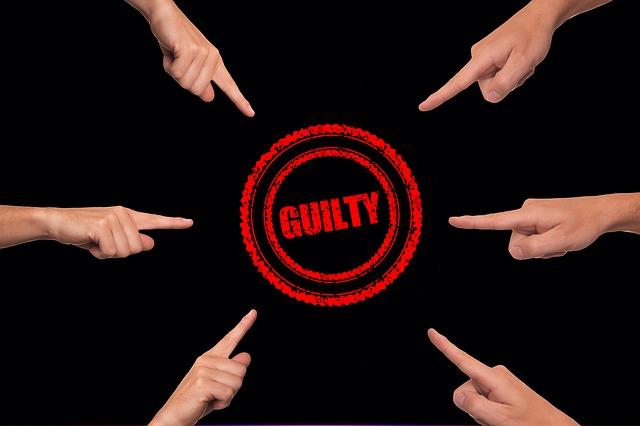In almost every working organization, you hear complaints of workers about their bosses or managers. We hear how stupid they are, the bad decisions they take, the often unreasonable orders given to the employees, but what happens when these people start making their own decisions? What happens when they don’t just follow orders anymore, and ‘bosses' are no longer to blame?
The agile transformation changes the way we communicate and cooperate. It also changes how we come to decisions, take actions and thusly assume shared ownership for them.
The company gossips would have to “human up” and stop the “blame game” because it would be on each of us to change and do the work; get hands on and think about the best way to navigate together. Giving and receiving orders would no longer be one way streets.
Imagine “The Agile Way” in a law enforcement setting.
Police would really start serving the people that are actually paying them (by taxes).
It helps to know who the clients are, even in this case, the people.
So both sides could respect and talk to each other.
They wouldn’t have to receive orders because they could decide themselves what it means to help or protect a human being, instead of blocking or sanctioning them or treat everyone like a criminal just because they are the law enforcement! Still no one is the law. That is what many enforcement workers forget.
Imagine no more hierarchies. People have to talk to each other, ask and answer questions instead. Perhaps uncomfortable questions, or questions that no one in the organization thought to ask in the last 20 years. Perhaps they never learned how to ask these questions, or how to give and receive feedback?
I had a recent experience at an international airport that made me think about why it is that the ground staff is so stubborn, unfriendly and often rude. Independent of each actual case, most people in these ‘order following jobs’ often reply, “That’s the rule” or “because it’s the law!”
No one is able or allowed to decide from human nature and logic anymore because our society is strangely regulated by rules that are often old, detached from reality and sometimes not even logic or right. It is “the way of organizing life and society” but as societies change and in the best cases, evolve, so should the laws evolve to reflect actual human needs.
Unfortunately, as fast as life (and organizations) change, the laws are way too heavy and inflexible to adjust accordingly.
That’s where we often spot the biggest gaps because organizations have to decide and respond so fast to changing environments but at the same time have to be aware of compliance matters or regulations which often hold them back.
We might need stronger agile and holistic approaches also for our law systems.
We would have much more responsibilities on our shoulders to decide and do what is right.
This is not easy and workers (in a competitive civilization) get scared or disoriented with such responsibilities because it is easier not to think for ourselves and become more responsible. But what does that responsibility really mean??
Responsibility means to respond with your ability to a given scenario. Way too often we are not conscious about our responsibilities because we are not used to trusting in our abilities.
So, in order to have employees become more responsible, we need to learn how to trust each other and each of us in our own abilities to respond accordingly.
That might be a re-defining process, in some extend, of what responsibilities really are.
So it means not to limit ourselves, down to the ability to follow orders, but that we are able to also think and respond the way we are able to.
If I don’t know or have the right abilities for something (for example: installing electricity in a house), I may better just follow an advice or order and still can learn how to do it myself but in most professions people know so much and have incredible skills but don’t believe in them or get limited not to use them.
That is what the agile approach can do for human beings in organizations with abilities and great skills.
So, the decisions should not be made from someone in a powerful position but in the intelligent swarm of human nature.
Interesting is that the metaphor of responsibility as responding to something is the same or similar in other languages.
Regarding the abilities, the Italian language might even bring capacity into this discourse, which opens other very interesting new perspectives for this topic.





